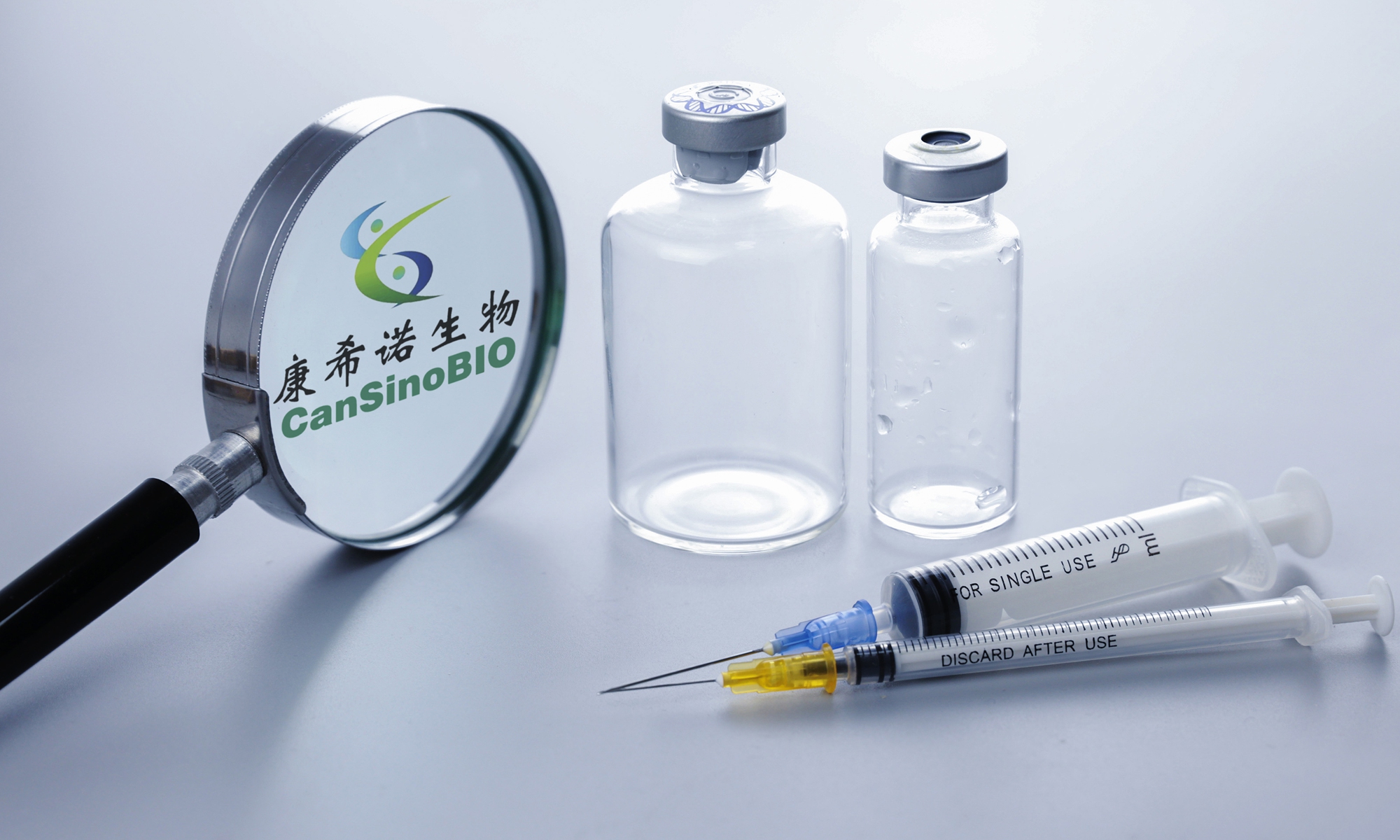CanSinoBIO co-founder seeks target of herd immunity by end of 2021

CanSinoBIO's vaccine Photo: VCG
Zhu Tao, a member of the 13th National Committee of the Chinese People's Political Consultative Conference, proposed accelerating China's mass vaccination program to inoculate 70 percent of the population and achieve herd immunity by the end of 2021.
Only when herd immunity is realized as soon as possible can we guarantee the stability of the economy and society, Zhu, who is also a co-founder and Chief Scientific Officer of vaccine producer CanSinoBIO, told the Global Times on Monday.
The Global Times learned that China is ramping up efforts to vaccinate 560 million people, or 40 percent of China's population, by the end of June, and another 330 million people will be vaccinated by the end of the year, covering 64 percent of the total population.
Zhu noted that although China has made great progress in vaccine development and vaccination, some problems still remain, such as unwillingness by some people to accept vaccines due to concerns over adverse reactions and uncertainty of theirs protection period and efficacy against variants.
"For certain reasons, some people still have concerns over the safety and stability of COVID-19 vaccines and are afraid of adverse reactions, so they prefer to wait and see when the vaccination is provided based on the non-compulsory principle," Zhu said.
Zhu suggested that authorities carry out measures such as expanding vaccine provision to more groups and issuing vaccine passports to recipients, as well as enhance promotion on social media platforms to encourage more people to get vaccinated.
According to Zhu, data from clinical trials showed that the level of antibodies in recipients started to decline three months after vaccination, and it is still uncertain how long the vaccines can protect recipients.
It is also possible that existing vaccines would become less efficient against variants of the novel coronavirus, he said.
Regarding these problems, Zhu suggested that the Chinese Center for Disease Control and Prevention (China's CDC) follow up and monitor the antibodies in recipients to clarify whether the vaccines have enhanced immunity against COVID-19 and whether a third injection is needed if some recipients' antibodies show an apparent decline.
Feng Duojia, president of the China Vaccine Industry Association, told the Global Times on Monday that as far as he knows, China's CDC is following up on some recipients from high-risk groups to monitor their antibodies.
"It is like a Phase IV clinical trial. But as the antibody test reagent itself is still in an experimental stage, the follow-up can only be conducted on a small scale," Feng said.
Research and development (R&D) into vaccines against variants is also needed, Zhu said, calling for related authorities to provide policies and guidance to support and encourage such R&D.
Zhu also called for national authorities to increase investment in key technologies and core facilities to realize domestic production of the entire vaccine industry chain, as the COVID-19 epidemic has revealed some shortcomings in China's vaccine industry, such as lack of reserves and provision of raw materials and loose cohesion between different links in the industry.
The relevant authorities should establish a whole-cover technology platform to cover R&D, production and review of vaccines and also provide quick reaction and technical support when a public health emergency occurs, Zhu said.

